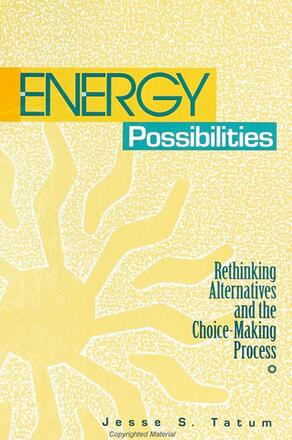
Energy Possibilities
Rethinking Alternatives and the Choice-Making Process
Alternative formats available from:
Examines the current and prospective energy sources and choices from the perspectives of science, technology, and social studies.
Description
Using the perspectives of science, technology, and society studies, this book grapples with questions stimulated by a concern that current energy policies and practices reflect neither the best interests of ordinary people nor decision-making consistent with the traditions and aspirations of democracy. Probing the depths of assumptions made in traditional analysis and assembling minority views, present practices come into focus as startlingly narrow social constructs amidst a vast unexplored terrain of material and socio-cultural possibilities. Questions of power and responsible action are pursued in this context, casting both traditional decision makers and citizens in less than a positive light. The author includes an examination of the experience of the "home power" movement not as "The Solution" to our energy problems, but as a concrete illustration of alternative theory and practice, and of the range of possibilities inherent in energy decisions. The book aims not at recommendations for prescriptive public policy, but primarily at refocusing the reader's attentions, as ultimate policy maker, on the core of the energy question: How do we wish to live in the world?
Jesse S. Tatum is Assistant Professor of Science, Technology, and Society at Michigan Technological University.
Reviews
"I admire Tatum's effort to foster reconceptualization of energy issues using a 'STS' (Science, Technology, and Society) framework. By focusing on problems with economic models and the conventional wisdom of engineers, he has steered clear of fruitless attempts to make alternative energy approaches look fully competitive on standard cost-benefit grounds. It is useful to see the linkages drawn between energy as a commodity, as a technology, and as an expression of social needs and values. " — Lamont C. Hempel, The Claremont Graduate School